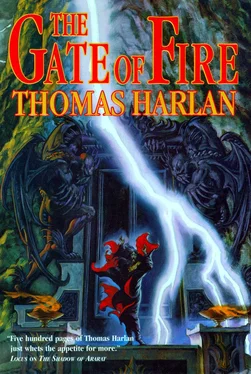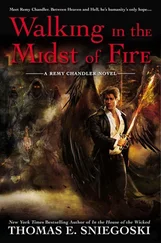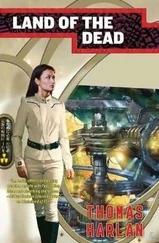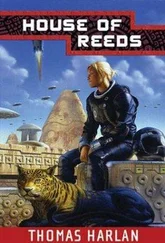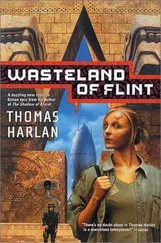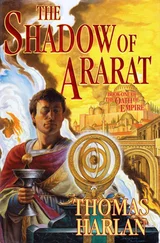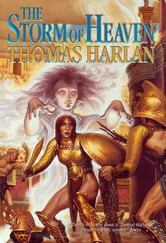Thomas Harlan - The Gate of fire
Здесь есть возможность читать онлайн «Thomas Harlan - The Gate of fire» весь текст электронной книги совершенно бесплатно (целиком полную версию без сокращений). В некоторых случаях можно слушать аудио, скачать через торрент в формате fb2 и присутствует краткое содержание. Жанр: Фэнтези, на английском языке. Описание произведения, (предисловие) а так же отзывы посетителей доступны на портале библиотеки ЛибКат.
- Название:The Gate of fire
- Автор:
- Жанр:
- Год:неизвестен
- ISBN:нет данных
- Рейтинг книги:4 / 5. Голосов: 1
-
Избранное:Добавить в избранное
- Отзывы:
-
Ваша оценка:
- 80
- 1
- 2
- 3
- 4
- 5
The Gate of fire: краткое содержание, описание и аннотация
Предлагаем к чтению аннотацию, описание, краткое содержание или предисловие (зависит от того, что написал сам автор книги «The Gate of fire»). Если вы не нашли необходимую информацию о книге — напишите в комментариях, мы постараемся отыскать её.
The Gate of fire — читать онлайн бесплатно полную книгу (весь текст) целиком
Ниже представлен текст книги, разбитый по страницам. Система сохранения места последней прочитанной страницы, позволяет с удобством читать онлайн бесплатно книгу «The Gate of fire», без необходимости каждый раз заново искать на чём Вы остановились. Поставьте закладку, и сможете в любой момент перейти на страницу, на которой закончили чтение.
Интервал:
Закладка:
A sloping street led off of the plaza, leading down to the harbor. Mohammed walked stiffly-he had spent too much time on a horse in the past week-and the descent made his thighs and ankles complain. From the vantage of the little hill, he could make out the ships tied up to the stone quays in the harbor and the bulk of the warehouses that lined the bay. Leuke Kome stood on a barren shore, a dozen leagues from anything that bore green leaves or a hint of water. The town existed only because it owned the sole harborage along this long stretch of desolate coastline. Despite that, there were still a dozen ships in the harbor. A hundred and eighty miles to the north, along a long, narrow valley, stood the Nabatean capital of Petra and the road to the great cities along Strata Triana.
Leuke Kome had served as an entrepot for the Petran trade in silk, cotton, perfume, rare spices, steel ingots, poppy paste, and gems for eight hundred years. Its wealth, its whole reason for being, lay in the safe harbor and the stone warehouses that rose two and three stories tall behind the road that ran along the piers. Most of the black smoke was billowing from the windows of one of those warehouses.
Mohammed's face was storm-cloud dark with anger. A faint breeze was blowing up from the sea, carrying a sharp smell and bending the pillars of smoke inland. Ten years spent in the trade, traveling the length and breadth of Arabia and beyond, even to India and the glorious, decadent cities of the Empire, had not been lost on him. He knew many spices, fabrics, and woods by taste and smell.
The Quraysh chieftain and his bodyguards reached the bayside road and turned. Other bands of Sahaba soldiers were beginning to gather as they finished their sweep through the town. When the sun had risen, hours ago, the port had still been in Imperial hands. Now it was Mohammed's possession, and he was furious that a quarter or more of its worth to him was being consumed as he watched. One of the Sahaba guardsmen coughed, catching a whiff of the sting in the air. Mohammed raised his riding scarf over his mouth and nose. Burning pepper let off a dangerous humor.
Mohammed had thought to leave Mekkah in secret, accompanied by only a few of his companions. The Tanukh, he knew, had sworn themselves to his service. Those bonds, forged in the battle furnace of Palmyra, would endure until his death or theirs. The men of the city, even his kinsmen, he had not expected to follow. Even after the capture of Yathrib and the extirpation of the Bani-Hashim and their allies, it had not occurred to the Quraysh chieftain that he had become the ruler of a people.
The Mekkan clans had fought and feuded and spilt each other's blood for centuries, and Mohammed had not thought to change them. He had sought to take the blood-price from the murderers who had left his child dead in his arms. He had hoped to crush the resistance to his adopted house and secure the patrimony of his children. In that, the promulgation of a common law for the people of both cities had been his aim. The friendship of the Ben-Sarid and the obedience of the Quraysh had been a welcome surprise. He had not told Jalal or Shadin about his dreams or the full truth of what the voice had said on the mountaintop, but they had followed him forth from the city nonetheless.
They had ridden out before dawn, in full darkness, finding the road only by the faint light of a crescent moon. Even then Mohammed had been wrapped in thought, listening to the echoes of the voice from the air. He had not noticed that the ranks of the Tanukh had swollen as they had ridden north. The appearance of Uri and his Ben-Sarid horsemen had seemed natural, for the Sarid had fought at their side at Yathrib.
Then dawn was almost upon them, and Mohammed had stopped. He knew that the Lord of the Seven Heavens had chosen him to undertake a dreadful task in the world. That thought filled his heart with a sense of rightness that had always eluded him. That emptiness in his soul, that yearning to find something to set his shoulder to, some task worthy of his full devotion, had driven him out from his house and across the face of the world. Now it was filled, and he knew that thanks were owed.
So, with the sun preparing to crawl over the jagged peaks and desolate mountains to the east of Mekkah, he had reined in his horse and dismounted. Without looking up, he had unrolled a blanket from the saddle of his mare and knelt on the gritty sand. Even though the white fire that had filled him that day before Ka'ba was gone, there was never a moment when he did not feel the distant voice of the stone. He knelt on the blanket and bowed toward the southeast, toward the sacred precincts.
Make your place of worship free of ornament and distraction, the voice had said from the clear air. How can you come to know the mind of the merciful and compassionate god if your eye is assailed by graven images and your ear by the importuning of priests?
Mohammed did not bow down before the Black Stone or the ancient house; he knelt before the Lord of the Wasteland that was in everything he could see or touch. The priests of the temples that his men had torn down had not understood that. In time they would.
When he stood he brushed the sand from the blanket and rolled it up. As he did so there was a susurration in the cool morning air, a rustling and a muted, clinking sound. He looked about, puzzled, and stopped in surprise, the blanket half folded.
Ten thousand men were rising as well all around him. The road behind the clot of Tanukh was clogged with horses and camels and pack mules. Tribal banners and flags fluttered in the air, lending the army a festive air. Men of every tribe in the city, and some he had never seen before, were rolling up their own blankets or swinging back into the saddle. Mohammed raised an eyebrow and turned to find Jalal standing at his side, fists resting on the top of his curved bow. Shadin and Khalid were already seated on their horses, long kaffiyeh trailing in the dawn breeze.
"Who are these?" Mohammed gestured toward the columns of men and the thickets of lances, sparkling in the light of the rising sun. Jalal smiled, his grim, scarred features cracking like a stone splitting under the stroke of a chisel.
"Men who would follow you wherever you may lead them, my lord."
And so they had ridden forth from Mekkah with an army, and made their way into the wastelands of the north, into the barren desolation of the Hedjaz.
– |A timber, burned through by the inferno raging inside the pepper warehouse, cracked like a sling-bullet against a shield. Part of the roof of the building fell in with a roar, sending sparks and a plume of thick black smoke roiling up. Waves of heat beat against Mohammed's face, and he took a dozen steps back. That left him at the edge of the stone pier, his hand on a stumpy round piling. The inside of the warehouse was a raging red heart as the close-packed barrels of pepper and marjoram burned. Mohammed felt the heat like a blow to his heart-the contents of such a warehouse were worth a thousand times their weight in gold on the trading tables of Constantinople or Rome or Saguntum. Any kind of spice-pepper was most highly prized-was easy to ship and carry and in vast demand. The Roman fondness for hot spices was legendary across the length and breadth of the world. The craving had made Palmyra and Petra rich. It had made Khadijah and the House of Khuwaylid wealthy, too.
"How did this happen?" Mohammed's voice rasped with repressed anger. To him the contents of these warehouses meant even more than they had to his dead wife or the Palmyrenes. Every ounce of spice that whirled away into the sky or fell as a fine ash over the town meant fewer sheaves of arrows, fewer suits of armored mail, fewer swords and lances and spears for his army.
Jalal squared his shoulders and stepped forward from the company of Sahaba, who had deployed themselves as a cordon around the burning building. His face was carefully blank. The Tanukh captain knew what lost supplies and arms meant to an army on the move. It might be his life that the fire cost, a month from now or more. "We were a fraction late, lord. I tried to take the merchant down with a bow shot, but he managed to get an oil lamp cast inside before he went down."
Читать дальшеИнтервал:
Закладка:
Похожие книги на «The Gate of fire»
Представляем Вашему вниманию похожие книги на «The Gate of fire» списком для выбора. Мы отобрали схожую по названию и смыслу литературу в надежде предоставить читателям больше вариантов отыскать новые, интересные, ещё непрочитанные произведения.
Обсуждение, отзывы о книге «The Gate of fire» и просто собственные мнения читателей. Оставьте ваши комментарии, напишите, что Вы думаете о произведении, его смысле или главных героях. Укажите что конкретно понравилось, а что нет, и почему Вы так считаете.
